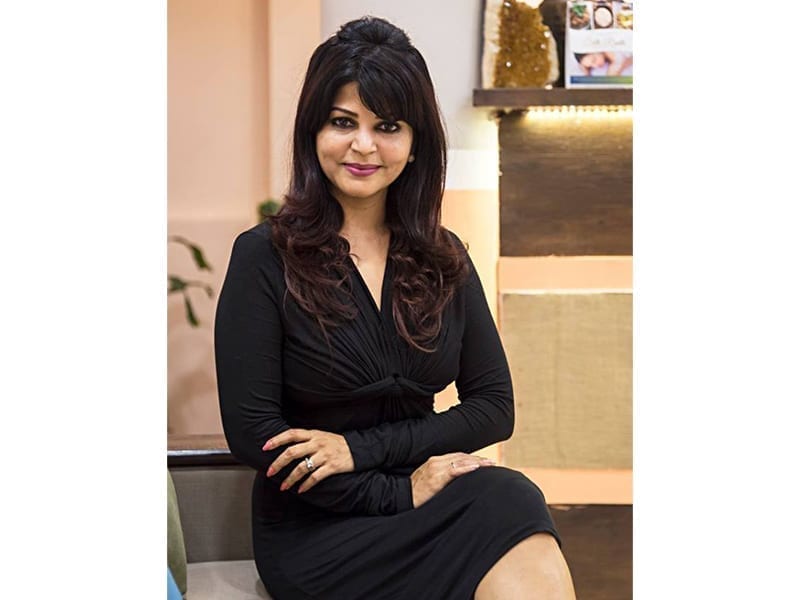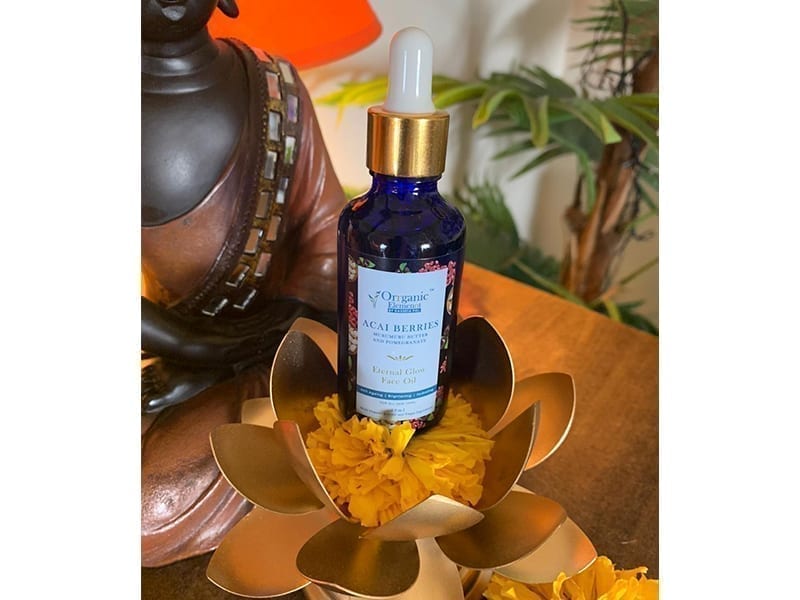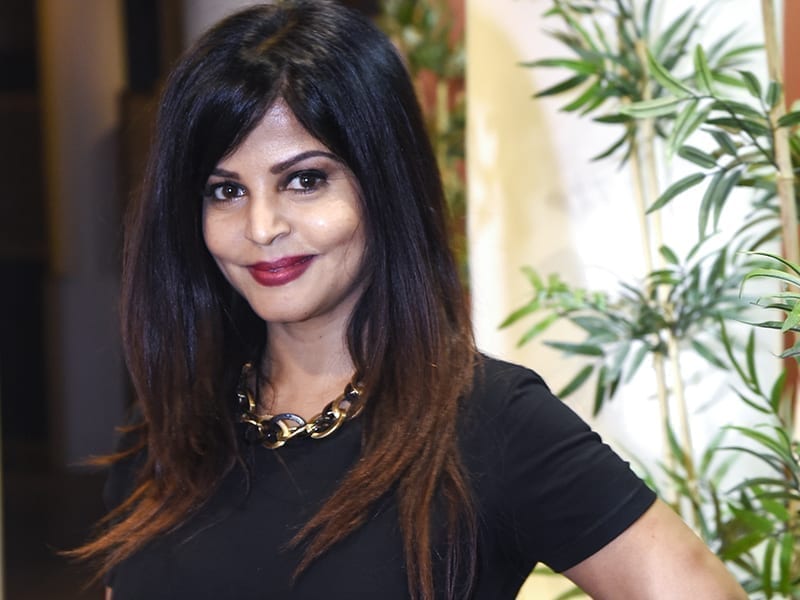A quarter of millennials in 2020 identify themselves as vegan. Interesting to note, The Economist even declared 2019 to be the Year of the Vegan. With sales peaking as high as 3.3 billion dollars, this rising demand for all things vegan has even coaxed the beauty industry to take note. However, there are a lot of confusing terms related to vegan or clean beauty in India and elsewhere. For instance, most people assume cruelty-free, organic, clean, and natural beauty, all mean the same thing. Also, when it comes to food, the labelling helps a person identify whether the product is vegan or not; it’s a lot trickier when it comes to beauty products, especially spa and salon products.
For example, many Indian celebrities like Sonam Kapoor, Kangana Ranaut, Neha Dhupia, Adah Sharma, and Jacqueline Fernandez follow a vegan diet. But, do they also look into the skincare and makeup products they’re using (most likely not vegan)?
Which brings us to Kaveeta Pol. A passionate animal welfare activist turned vegan, Kaveeta Pol took things a step further when she sought vegan alternatives for her beauty products. After endless research, she was finally able to curate India’s first-ever organic and vegan spa and salon in Pune in 2016, where services like waxing, hair smoothening, straightening and so on, have all taken on an organic and vegan avatar. A decade into the industry, Kaveeta’s here to help you understand vegan beauty and why you should consider embracing it.
1. What does Vegan beauty mean & why is it important?

As vegan beauty becomes popular, this question becomes increasingly important. Holistic vegan beauty entails 3 different aspects specifically in the beauty industry:
- No animal by-products
- No animal testing
- No unethical ingredients or sourcing of ingredients
Animal by-products are used rampantly in the beauty industry as ingredients; if you pick up products from your dressing table, you’re bound to find some. Stearic acid, used most often in lotions, moisturisers, and face creams is derived from animal tallow (fat) and animal proteins which are very popular and well accepted in the cosmetic industry for their faster results. Lanoline is a common emollient/moisturising agent which is derived from sheep’s wool. The key takeaway here is that animals being reared for the sole purpose of being ingredients in products is absolutely cruel and a waste of Earth’s precious resources like water, grains, etc. These animals don’t belong in our blood stream for the betterment of our skin and hair and there are many long-term negative repercussions associated with them.
Today there are multiple plant-based alternatives to these ingredients, which is what we have identified not only with our brand partnerships but also with our own product line.
Animal testing is a concept we’ve all been exposed to for a while now, and it is as straight forward as its name. As consumers, we must understand the reason this is done. The chemical formulations used in products we use every day are so harsh that a product made for humans is not tested on humans, but animals? Try and stop to think about that, what are they making these products with and why are we allowing these chemicals into our body?
Ethical sourcing of ingredients is something that has been recently welcomed with open arms into the vegan world because extensive research is finally being done on this. Palm oil, a very cheap oil to produce currently, has 200 derivatives being used in shampoos, lotions, soaps and lipsticks. To meet this humongous demand, Malaysian Borneo’s rainforests account for 57-69% of deforestation, destroying habitats of hundreds of species like orangutans and tigers, of which India is a very large contributor. Additionally, cheap production of ingredients leads to oppressed labour and terrible working conditions. An ethical plantation for any ingredient would be one that cultivates plants for the purpose of products without actually harming a natural forest land.
2. Are vegan products cruelty-free?
Cruelty free only identifies if the product has been tested on animals or not, but as mentioned above, a vegan product must check a lot of other boxes. It should not be an animal by-product, nor should it be unethically sourced.
3. Is vegan beauty the same as clean beauty? Is it the same as organic beauty?

They are each complementary aspects of creating a product that is organic and vegan.
Clean beauty is a term used to define products that do not use known harmful chemicals. Today the known harmful chemicals are PPD, Sulphates, Phthalates. Whereas, organic beauty also entails products whose ingredients do not use the above chemicals, but also do not contain synthetic or artificial ingredients.
The most all-encompassing terminology would be organic and vegan, because these two cover all of the aspects.
4. What on the ingredients label indicates that the product is vegan?
There are a few certifications available which are represented by a logo or icon on the product. Apart from this, look out for the most obvious non-vegan ingredients like milk, gelatine (pig or cow bones, tendons, ligaments), squalene (shark liver oil), carmine (crushed beetles used red pigment), beeswax, and so on.
Most of our Naanis’ and Moms’ beauty nuskhe are actually all vegan! And that’s the golden truth for the centuries-old haldi-besan face pack or a multani mitti face pack which is the ultimate proof of veganism in ancient beauty rituals.
5. There are a lot of brands which use different certifications for their products. What are some of the certificates that truly matter?
Every vegan certification is here to do the same job, which is to eliminate doubt. But internationally there are some very renowned ones like Vegan Society, Leaping Bunny, and PETA (cruelty free and vegan). For organic certifications, ECOCert is the one to look for; our product went through this certification, they are extremely strict and thorough.
6. What are the cosmetic advantages of using vegan beauty products for your skin and hair?
The problem with customers today is we want quick fixes and shortcuts. If that’s what you want then organic and vegan products are not for you. However, there is a segment of people who want results with no long-term damage and they are conscious about what they’re attesting with their purchase.
I can speak for products that are a combination of vegan and organic since that’s what we stand by. The removal of all unnecessary chemicals, artificial ingredients, pesticides, synthetic additions, and animal by-products just means you’re left with all of the good stuff. And the results are better!
The products might be slightly more expensive because there is no scope to take shortcuts in formulations; if demand increases our raw materials also become more affordable which can allow for lower prices in the future.
7. Is there evidence that vegan beauty products are safer for the body?

We mustn’t forget that 60% of any product you apply on your skin gets absorbed into your bloodstream directly (as opposed to ingesting, which is filtered through organs like the kidney and liver). So if you have chemicals, synthetic ingredients, oil from sheep’s wool or fat from a cow’s tendon reaching a place where it does not belong – your bloodstream – you know that’s not going to do you any good.
For example, what your skin and bloodstream actually need for skin results are ingredients like vitamins A, C and E, and oils derived from the actual source. These ingredients in their most-effective form are used in vegan products, and show evidence of effective results. We see it every day in our salon. Customers who use our curated brands are unable to turn back to their previous products anymore.
Another example is with hair products, the keratin in our hair smoothening brands use wheat and oats for protein and not boiled animal ligaments. The results are stunning and there is absolutely no damage to the hair, which is almost a given nowadays with hair smoothening services.
Apart from that, with organic beauty, in just a quick search you will find the internet filled with experiences of people from around the world having allergic reactions and experiencing long-term repercussions because of products with harsh ingredients like PPD or sulphates, and so on.
8. Which brands in India offer authentic vegan beauty products?
There is a wonderful boom of vegan brands in India right now and we are proud to be a part of that movement. There are makeup brands like Disguise, perfume brands like Verdure, vegan fashion brands like Purvi Doshi, accessories brands like Gowma, and so many more. We have also recently launched our own vegan and organic face oil, called Eternal Glow.
9. Does Vegan beauty suit all skin types? How good is it for someone with sensitive skin?
Vegan beauty products are the absolute BEST for sensitive skin! They eliminate everything that your skin or hair could possibly be reacting to in your existing products. You might not even know it, until you try it.
As far as other skin types are concerned, just like any other brand, vegan products also have a variety, some suit all skin types, some are made specifically for oily skin, some for dry, and so on.
10. What is the relationship between desi nuskhe (home remedies) and Vegan DIYs?
Most of our Naanis’ and Moms’ beauty nuskhe are actually all vegan!
And that’s the golden truth for the centuries-old haldi-besan face pack which is the ultimate proof of veganism in ancient beauty rituals. And now, the future of the beauty industry in India is in all things vegan and not animal-tested. Clean beauty is definitely the trend and it’s time to start investing in it.

